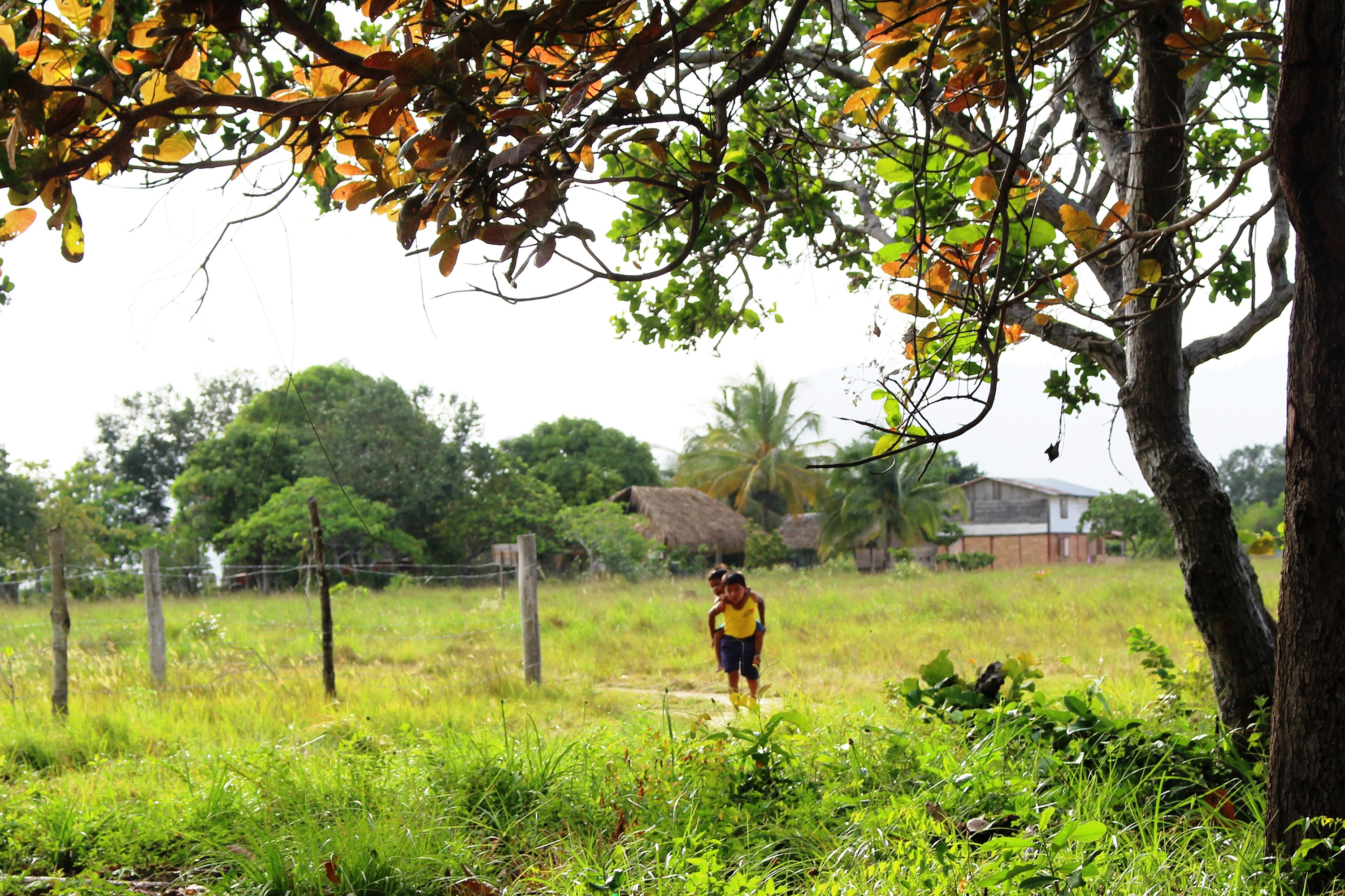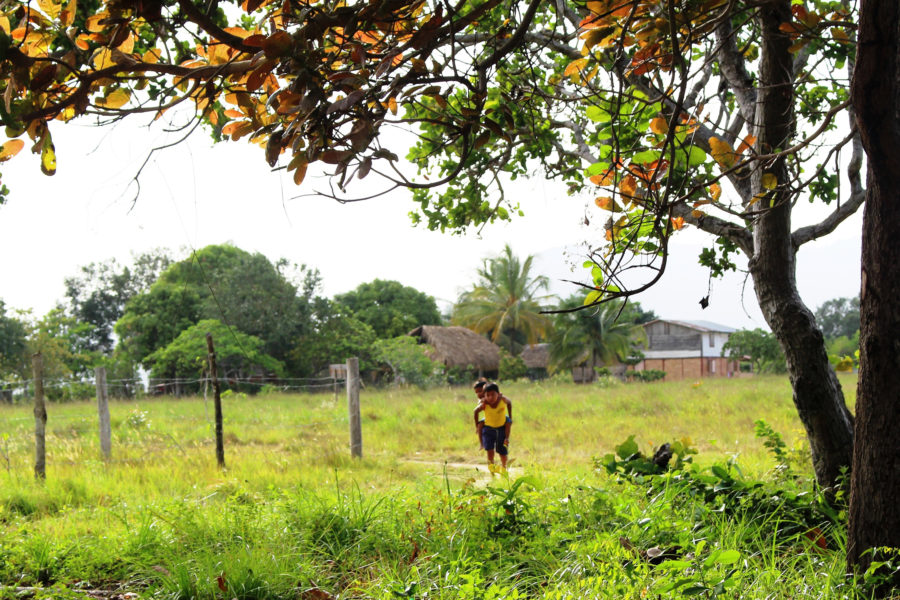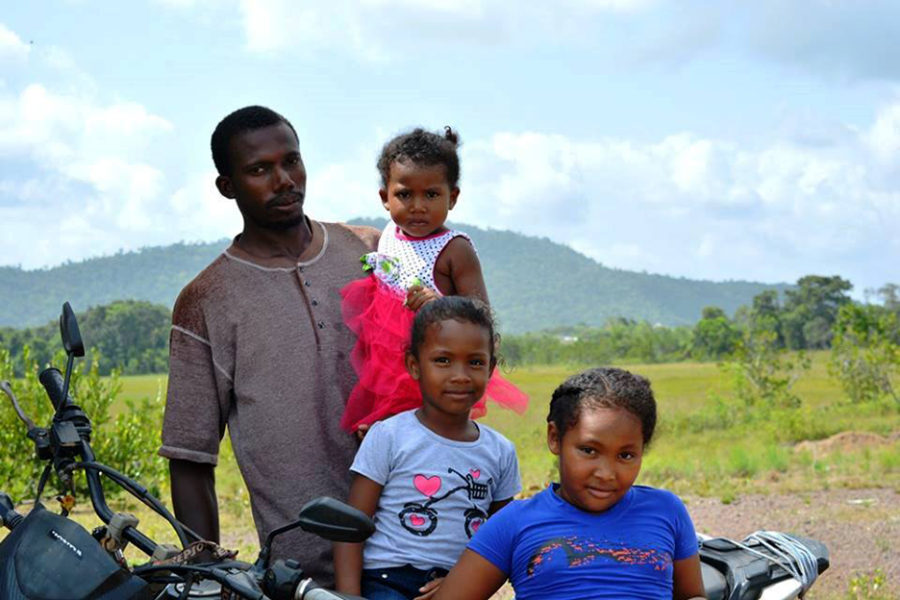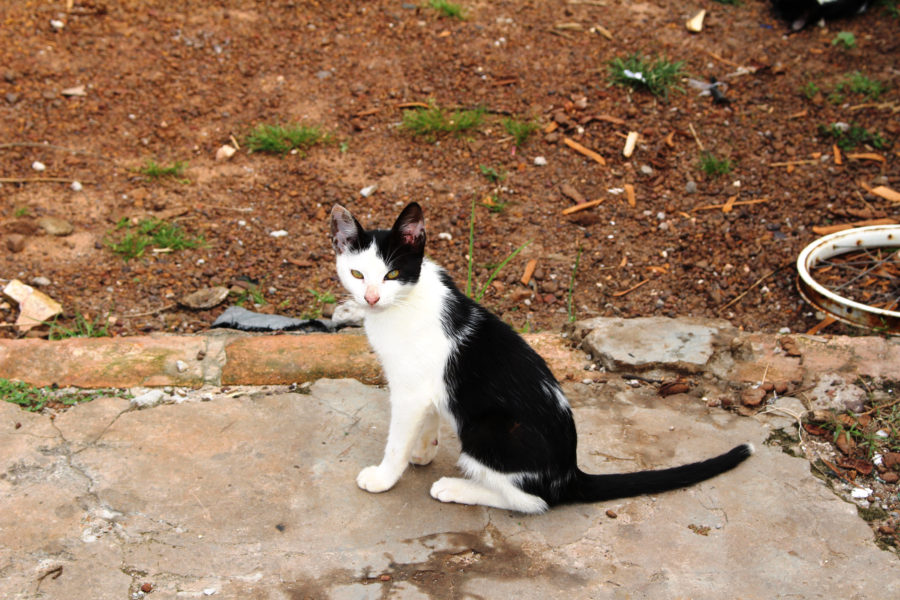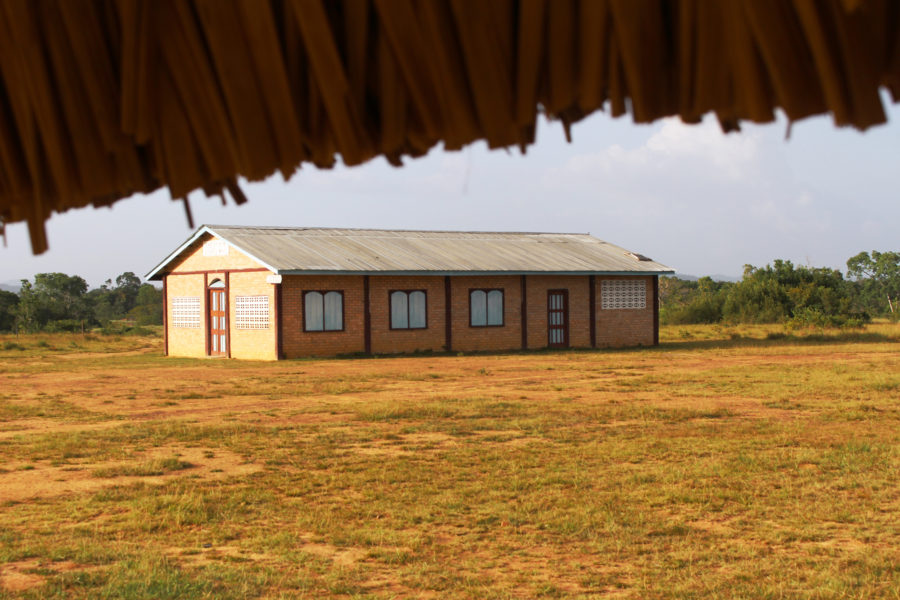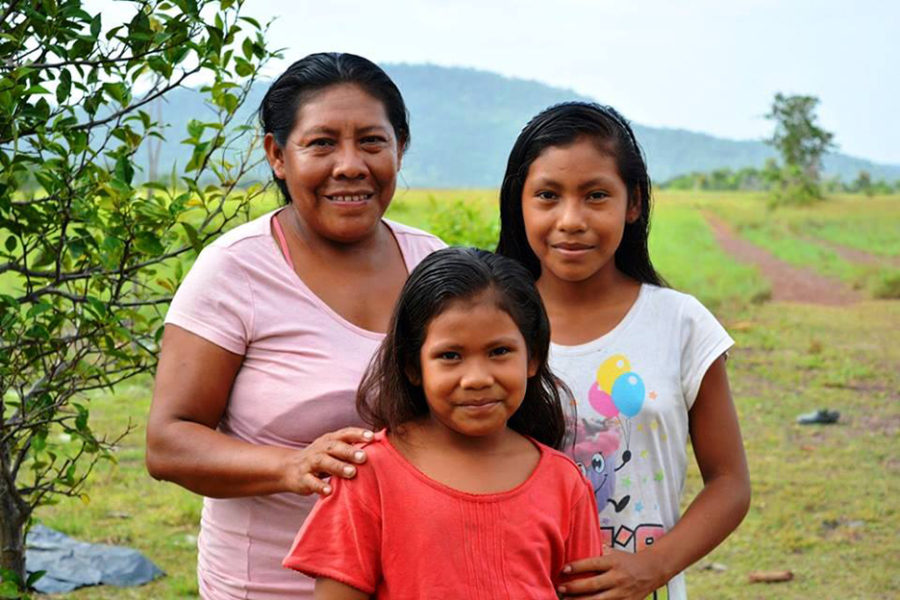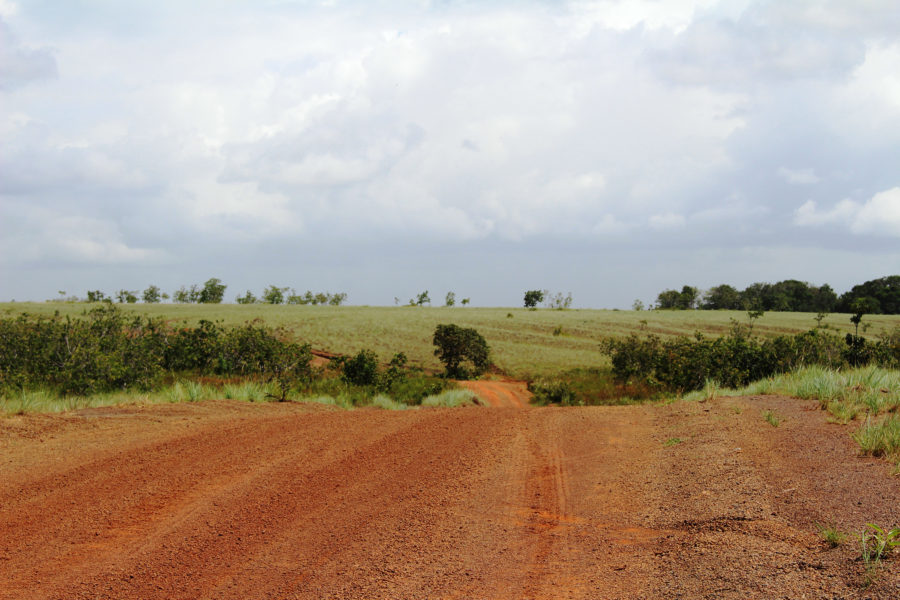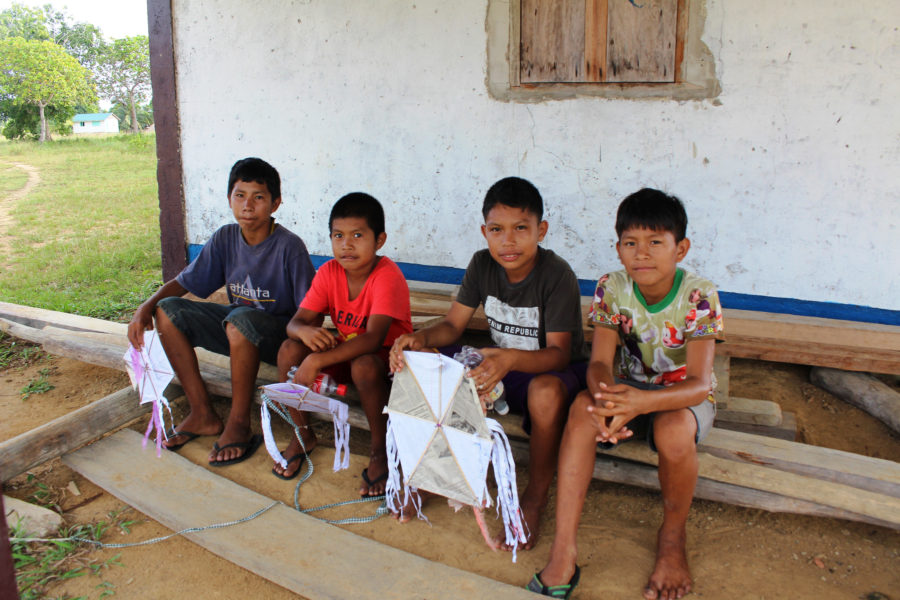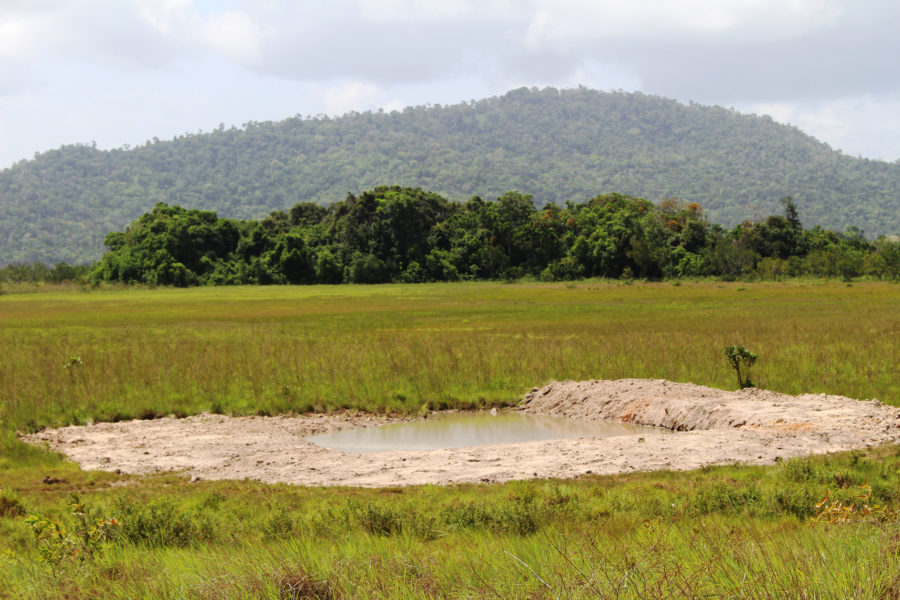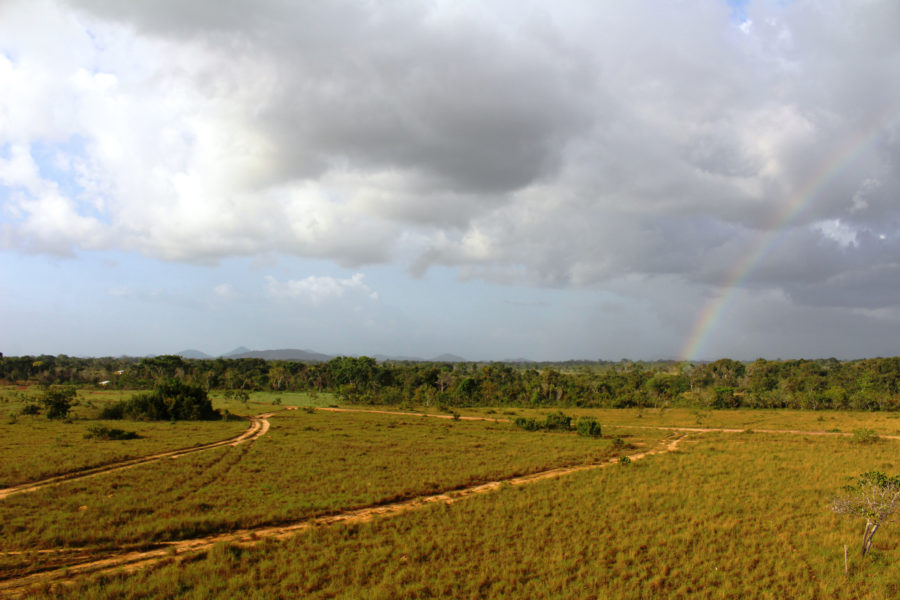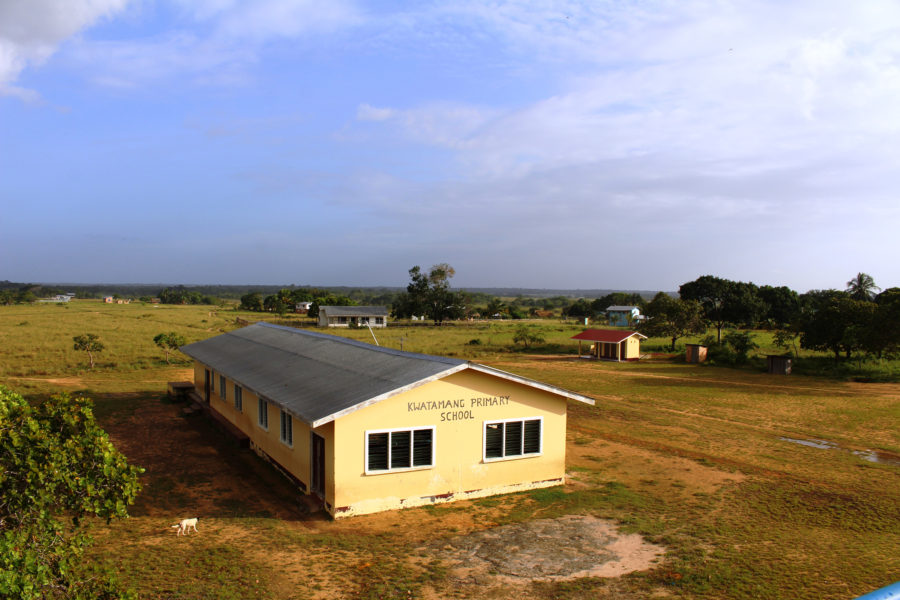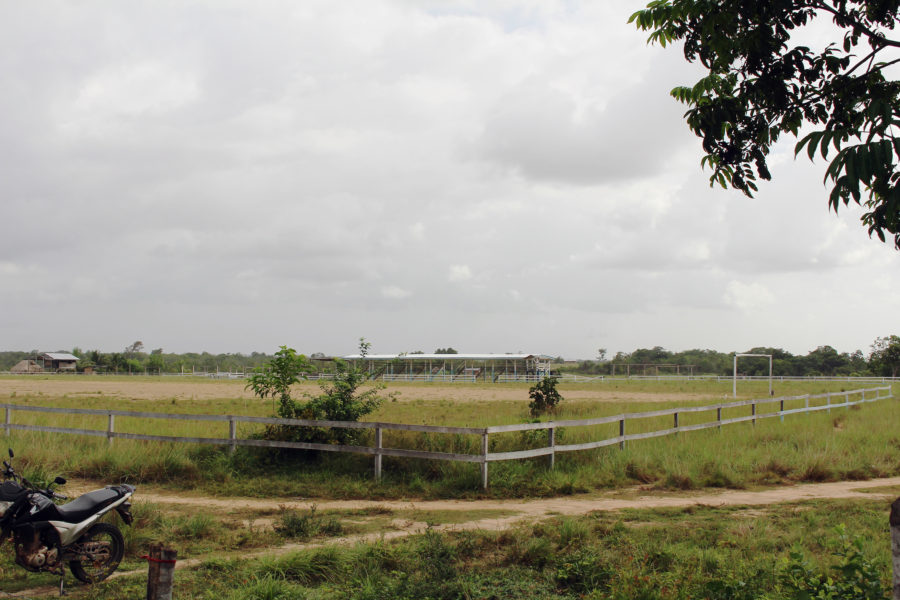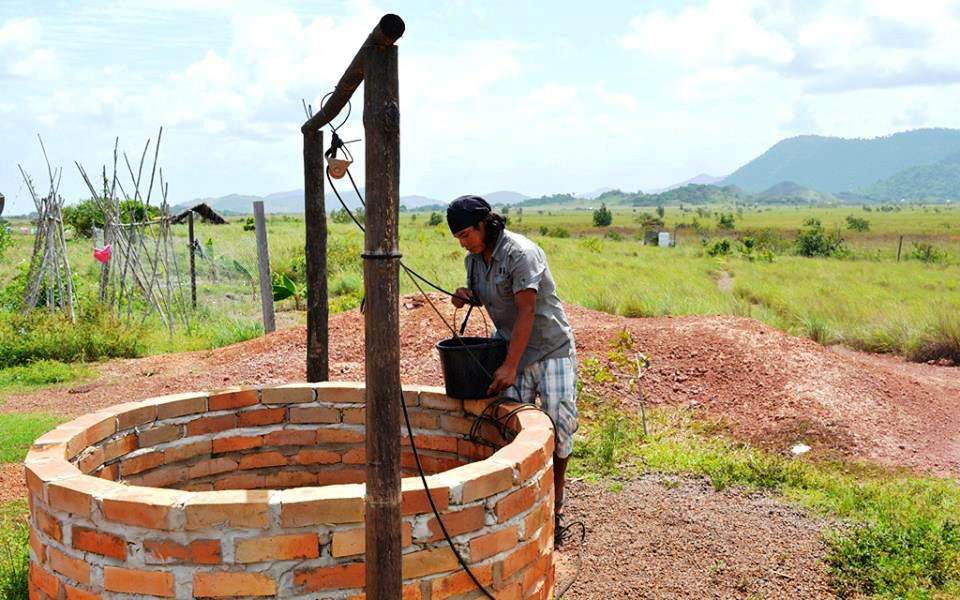Kwatamang, one of the five satellite villages of Annai, is situated on very hilly terrain. The 400-odd people living there are predominantly Macushi. Kwatamang in Macushi is ‘quata’ meaning ‘black spider monkey’ and ‘man’ for ‘male’. Villagers said that originally the village name was spelt Quataman, but as time went by this was changed to the current spell
Legend has it that the Kwatamang Mountain, situated on the far western side of the village, was once home to a huge male ‘quata’ (monkey) whose howls bellowed through the village. But there came a time when this quata and others suffered from hunger and thirst so they journeyed down the mountain in search of food and water. Their quest led them through the village (which thus earned its name) down to the Rupununi River landing.
Back on my borrowed bicycle, I set out for Kwatamang from Annai, facing some of the steepest hills I had ever seen and ridden that had me praying for strength to pedal all the way up and praying again that the brakes didn’t fail.
One of the very first hills brought me to a little shop, selling all sorts of eatables, run by Lonsdale Rodney. Originally from D’Edward, West Bank Berbice, Rodney was on vacation sometime in 2003 and travelled to Lethem and Brazil via the trail. He fell in love with nature. However, nature wasn’t the only thing he had eyes for; he found a Kwatmang beauty as well. During a visit Georgetown, she invited him back to her village and today, she’s his wife. They have three little girls. Kwatamang became home.
According to Rodney, for persons to become resident in the village, there is a three-year probation period. Rodney moved there in 2012 and is considered one of the residents of Kwatamang. In fact if you saw him around the Macushis, you would believe he was one of them or that he had lived there his whole life.
“I like the peacefulness, fresh air and the wild animals. I like the birds here; I have a towa-towa. Sometimes I sell when they’re in season,” he said.
Rodney has adjusted to a life of farming. He plants cassava, eddo, tania, banana and plantain, mainly for home use. Farine, when made, is sold. What took him more time to adjusting to, was eating tuma pot with farine. He confessed that it took him almost two years to get accustomed to eating it. When asked if he enjoys eating it now, he laughed then stuttered “not really, more like average.”
Rodney is the coordinator of a group called Kwatamang HEYS (Hinterland Employment and Youth Service) Agricul-ture Garden which has been functioning almost a year now and which provides the village with cash crops. The group converted an enclosure in which they kept cows into the village garden. He explained that this spot was designated the best spot for the garden as they believed the land to be fertile owing to it being a corral before.
“Recently the ministry [of Indigenous Peoples Affairs] sought to bring back farming to the communities,” Rodney said.
“If you give the Amerindian children okro or boulanger, they may not like it because they’re accustomed to their cassava and farine, but they are trying to reintroduce/introduce this to the people. It’s not one kind of crop only; it’s different kinds.” he said. Those working along on this project have been put into groups, responsible for planting their own crops. Later on he took me on his motorcycle to the garden a few hills away.
Since I had visited Kwatamang on Easter Sunday, we talked a bit about the activities that residents would usually participate in during this period. Usually, persons would head down to the Annai Ground to watch a game of football or cricket. However, this year, many persons were away at a church conference so there were no big plans for the holiday.
Normally, though, holidays are big in Kwatamang and Christmas, according to Rodney, is one of the biggest celebrations that is highly anticipated. At Christmas, a villager might slaughter a cow. Those who do not have cattle would hunt powis, tapir and deer or catch fish. “Whatever you have you bring along and we have a feast. We usually meet at the Kwatamang Sports Complex,” he related.
During our interview, he took the time to stress about the development of the sports sector in the village. “Sports is what I’d like to be developed – as in track and field. My daughter who is in nursery is good at track and field. Usually they would get a trophy but they could include prizes of value; prizes that would benefit them. We need to include javelin, discus and shot-put in our sports. I’m good at javelin. Sometimes people mightn’t like running but they can fall into one of these categories,” he enthused.
Rodney is also the Community Deve-lopment Council person for Kwatamang Claybrick Factory. It is not functioning as yet, but once it’s up and running, there are plans are to sell claybricks to the villagers and persons outside the village.
Two hills later, I’m chatting with another resident, a Macushi who was born in the village. Denneseia Winter was seated under a tree looking out when I caught up with her.
She has six children, two of whom attend Kwatamang Primary School a short distance away; the other four are at Annai Secondary School at Bina Hill farther up, almost at the head of the village. Winter’s husband works at the Claybrick factory. He also works with himself making bricks and selling them for $40 each. This job, however, is seasonal so he makes bricks during the dry season and works year round on his farm. Winter is a housewife/poultry farmer. She rears creole chickens and pigs. Right now, the only chickens she has are the ones left for home use, since she sold them all a while ago. Sometimes to add to this supply of meat, her husband journeys to the Rupununi River to catch fish: basha, lukanani, patwa, hurri, hassa and one in particular called banana fish. But with the recent rainfall, the river level is rising and hardly any fish is caught during this time.
Winter explained that she loves living at Kwatamang and could see herself living nowhere else especially in Georgetown. “One time I went to Georgetown with the bus. I don’t like Georgetown; it’s smelly. You don’t really get breeze there and it’s like a prison. Here you get breeze and it smells better,” said the woman.
There is one disadvantage the woman foresees and it concerns her children completing school. “I feel it’s getting harder for my children as they grow. It’s hard to get jobs here; it would be nice to have other jobs besides farming.”
Asked about her plans for the following day, Easter Monday, she said she intended to go and work on her farm, three kilometres away.
It was at this point that Rodney showed up. Having taken his wife to the village garden, he had come to carry me there as well on his motorcycle. (Continued next week)
